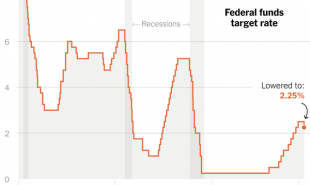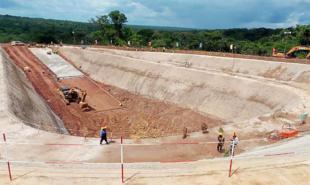
This is evolving and we don't claim to see the whole board, but it does seem to be that the world is looking at the North Korean situation as a much bigger economic game of chicken with China and that benefits Gold. That sounds like an obvious statement, but what is behind it is not.
Recently Rickards has been conveying China's increased buying of Gold, perhaps raising their price levels to get more of the metal quickly. When looked at against the backdrop in Korea, it makes some sense.
One of the main reasons Gold rises during war is that paper currency is no longer good for trade. Gold talks during these times. And the alliances that used to be China and the US vs. Russia under Obama are apparently now Russia and the US vs China at least on the surface.
Rickards spoke recently in a podcast where he describes the dynamics involved between Russia, the US, and China. What we see is Korea as another catalyst/ reason for China to buy gold for monetarily defensive reasons and combine that with capital controls to shore up the capital outflows it recently experienced. This is our conjecture. We do see offshore Yuan holdings appreciating vs the USD now as what could be a sign of that.
As of right now, China is under pressure from this new "survivor" type alliance against them under Trump. China is now defensive and that means more gold bought and a reasonable expectation of the US invading North Korea.
Meanwhile, Russia is in a win-win situation as they continue to deepen oil for gold type deals with China.
China is in a difficult situation. If the US destabilizes North Korea, China may get a massive inflow of immigrants they do not want. What follows is Rickards explaining the possible "hows" of a North Korean destabilization.
Jim Rickards: The North Korean Endgame is Playing Out Now
via daily reckoning
As mounting tensions rise from the latest round of nuclear testing out of North Korea, Jim Rickards believes a considerable window is closing by the United States. The threat of a nuclear armed and capable North Korea is a line that the currency wars expert and macro analyst believes the United States will now allow to be crossed. Speaking on CNBC’s Capital Connection Rickards offered his latest critique of the restrictions and response by the international community on North Korea.
The interview began with a question what an oil embargo would mean for North Korea and how it would impact that country. Rickards blasts, “North Korea has already beaten the world to the punch. They’ve been building up their strategic oil reserves. What that means is they have an estimated year’s worth of held in reserve and China has played a role in these things in the past.”
“The area that would be effective for a reactionary measure would be for the United States to exclude the People’s Bank of China, the Industrial and Commercial Bank of China and some of the other major Chinese banks from within the U.S dollar payment systems. The U.S could completely shut down the U.S operations.”
Jim Rickards is the editor of Strategic Intelligence and a best-selling author featured in the New York Times for his latest work, The Road to Ruin. Rickards’ worked on Wall Street for over three decades and has advised the U.S intelligence community on international finance, trade and financial warfare tactics.
On the keys to a successful response, Rickards notes that China plays a pivotal role. The macro analyst relays, “Ultimately, the Chinese are facilitating the North Korean finance. The move would be a kind of sanction with bite behind it. My expectation would be that China wouldn’t necessarily put pressure on North Korea. In reaction we could see escalation of further sanctions from the Chinese against the United States leaving for a trade and financial war without solving the North Korean situation.”
Speaking on the impact of nuclear development in the country the intelligence community advisor warns, “Currently, North Korea is in what is classified as a ‘break out.’ Under typical nuclear development phases, we’ve normally seen countries that are cheating on nuclear development programs complete their operations in baby steps. In the process they proceed gradually and when they do draw attention will stall programs until beginning again at a later date. North Korea has put that pattern aside and is in complete breakout.”
“To give a U.S football comparison, they’re in the red zone and the quarterback is simply about to throw a pass into the end zone. The leader of North Korea is going for it and not hiding anything. The leadership in North Korea is hoping that the United States is bluffing and that they will be able to get a serviceable intercontinental ballistic missile (ICBM) with a hydrogen bomb that could threaten or destroy Los Angeles before the U.S could do anything. The United States is facing a six month window to act and I believe they will.”
When asked about the preemptive strike threat by the United States and what it means for China the currency wars expert narrowed in, “China will be looking out for its own interest. They will have great concern over a U.S ground invasion in North Korea and as was the case in 1951 they would be highly concerned over any proximity of forces to the border. There would also be concerns that the U.S is attempting to reunify the Korean Peninsula under U.S strategic interests.”
“The way I expect that the U.S government will approach the situation is to approach China in outlining that it will be functioning toward strategical means. What that would signal is that they are not going to get anywhere near the Yalu River and that special operations and cyber warfare will be a key role.”
“My expectation is that the first steps will see the country going dark by shutting down the power grid and cutting off the command and control operations. From there they will use psychological warfare tactics. The objective will be to disrupt all North Korean operations before the heavy bombers move in. North Korea will be limited and reduced in its artillery response.”
“All of that will be relatively close to the demilitarized zone (DMZ) region. By indicating to China that when the U.S military operation is over that they will be looking to open up communications and negotiations to reunify stability on mutually acceptable terms.”
Find the full interview of Jim Rickards’ analysis on North Korea featured on CNBC here.
Read more by Soren K.Group







